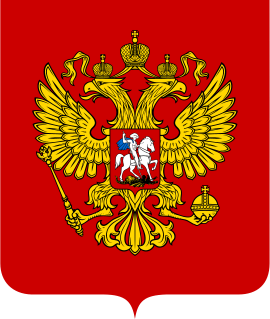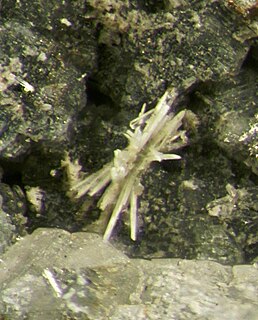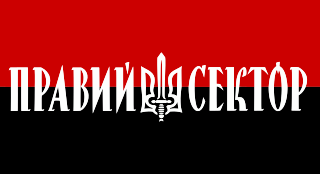Conservatism is a political and social philosophy promoting traditional social institutions in the context of culture and civilization. The central tenets of conservatism include tradition, hierarchy, authority, and property rights. Conservatives seek to preserve a range of institutions such as religion, parliamentary government, and property rights, with the aim of emphasizing social stability and continuity. The more traditional elements—reactionaries—oppose modernism and seek a return to "the way things were".

Leninism is the political theory for the organisation of a revolutionary vanguard party and the achievement of a dictatorship of the proletariat as political prelude to the establishment of socialism. Developed by and named for the Russian revolutionary Vladimir Lenin, Leninism comprises socialist political and economic theories, developed from Marxism and Lenin's interpretations of Marxist theories, for practical application to the socio-political conditions of the Russian Empire of the early 20th century.

A political spectrum is a system of classifying different political positions upon one or more geometric axes that represent independent political dimensions.
Right-wing politics hold that certain social orders and hierarchies are inevitable, natural, normal, or desirable, typically supporting this position on the basis of natural law, economics, or tradition. Hierarchy and inequality may be viewed as natural results of traditional social differences or the competition in market economies. The term right-wing can generally refer to "the conservative or reactionary section of a political party or system".
Far-right politics are politics further on the right of the left-right spectrum than the standard political right, particularly in terms of extreme nationalism, nativist ideologies, and authoritarian tendencies.

Freedom of peaceful assembly, sometimes used interchangeably with the freedom of association, is the individual right or ability of people to come together and collectively express, promote, pursue, and defend their collective or shared ideas. The right to freedom of association is recognized as a human right, a political right and a civil liberty.
The State Political Directorate (GPU) was the intelligence service and secret police of the Russian Soviet Federative Socialist Republic (RSFSR) from February 6, 1922 to December 29, 1922 and the Soviet Union from December 29, 1922 until November 15, 1923.

United Russia is the ruling political party of the Russian Federation. United Russia is the largest party in Russia and as of 2018 it holds 335 of the 450 seats in the State Duma.

The LDPR — Liberal Democratic Party of Russia, briefly, the LDPR or Liberal Democratic Party, is a socially conservative, nationalist and economically interventionist political party in Russia led by Vladimir Zhirinovsky since its founding in 1989.

This article discusses political parties in Russia.
Commissar is an English transliteration of the Russian комиссáр, which means commissary. In English, the transliteration "commissar" is used to refer specifically to the political commissars of Soviet and Eastern Bloc armies, while administrative officers are called "commissary".

The Union of Right Forces political party, or SPS, is a Russia political public organization and former party, initially founded as an electoral bloc in 1999 and associated with free market reforms, privatization, and the legacy of the "young reformers" of the 1990s: Anatoly Chubais, Boris Nemtsov, and Yegor Gaidar. The party was officially self-dissolved in 2008. Nikita Belykh was the party's last leader in 2005-2008.
Within Russian political parties, liberal parties advocate the expansion of political and civil freedoms and mostly oppose Vladimir Putin. In Russia, the term "liberal" can refer to wide range of politicians –( for reference check NCERT class 9 chapter socialism and Russian revolution )simultaneously to Thatcherism/Reaganomics-related pro-capitalism conservative politicians, to centre-right liberal politicians and to left-liberal politicians. The term "liberal democrats" is often used for members of the far-right nationalist part, the Liberal Democratic Party of Russia. There are Russian opposition and pro-government liberal political parties in Russia. Pro-government liberal politicians support Putin's liberal policy in economics.

Kukharenkoite-(Ce) is a barium cerium fluoride carbonate mineral, formula Ba2CeF(CO3)3. It was identified from samples found in the Mont-Saint-Hilaire alkaline intrusive complex, Quebec, and the Khibiny Massif, Kola peninsula, Russia. It was named for Russian mineralogist Alexander A. Kukharenko (1914–1993).
Party of Growth (Russian: Партия Роста; Partiya Rosta is a political party in Russia with representatives in several local legislatures. Founded on 18 February 2009 as a merger of the Union of Rightist Forces, Civilian Power and the Democratic Party of Russia, the party's main policy stances are liberal free market economy, democracy and protecting the rights of the middle class. Although widely regarded as a pro-Kremlin party, it has already found itself in opposition to the presidential administration on several occasions.
The Korchak culture is an archaeological culture of the sixth and seventh century East Slavs who settled along the southern tributaries of the Pripyat River and from the Dnieper River to the Southern Bug and Dniester rivers, throughout modern-day northwestern Ukraine and southern Belarus.

Right Sector is a Ukrainian nationalist political party and movement, generally described as far-right. It originated in November 2013 as a paramilitary confederation of several radical nationalist organizations at the Euromaidan revolt in Kiev, where its street fighters participated in clashes with riot police. The coalition became a political party on 22 March 2014, at which time it claimed to have roughly 10,000 members.

Dmytro Anatoliyovych Yarosh is a Ukrainian Member of Parliament, activist, politician, and the main commander of the Ukrainain Volunteer Army. He is the former leader of the far-right Right Sector organization. Late 2015 he withdrew from Right Sector. In February 2016 he started a new organisation called Governmental Initiative of Yarosh (DIYA).

Maxim Leonidovich Perlin is a Russian activist, journalist, producer, publisher and mass media professioal. He is the co-founder of the face recognizing service FindFace.












